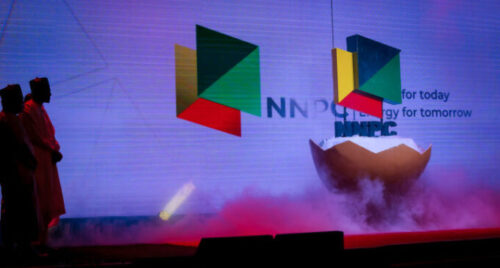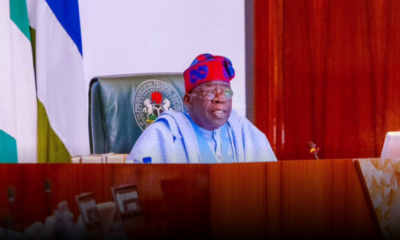The Nigerian National Petroleum Company (NNPC) Limited says the country’s petrol subsidy regime has been “fuelling the vicious cycle of poverty” in the nation.
According to the National Bureau of Statistics (NBS), 133 million citizens in Nigeria, Africa’s biggest economy, are multidimensionally poor.
According to Oxford Poverty and Human Development Initiative, multidimensional poverty encompasses deprivations experienced by poor people, such as poor health, lack of education, inadequate living standards, and living in environmentally hazardous areas.
Speaking at a joint National Association of Nigerian Students (NANS)/Civil Society Organisations (CSOs) event on Thursday, Lawal Musa, senior business advisor to Mele Kyari, group chief executive officer (GCEO) of NNPC, said the federal government spends as much as N4.8 trillion annually on petrol subsidy, at the expense of the wellbeing of Nigerians.
In a presentation titled, “petroleum industry act (PIA) and the Nigerian economy’’, he said the amount spent on petrol subsidy payments could deliver infrastructural projects to the citizens.
Further analysing the opportunity cost of the subsidy spending, Musa said deregulation of petrol prices could deliver 500,000 new houses and skill up of 2 million Nigerian students, among others.
According to Musa, the amount spent on subsidy could provide 7,500 kilometers of road network at N400 million per kilometre and 37 well-equipped 120-bed tertiary health centres at N32 billion per hospital annually.
Advertisement
He added that the subsidy spend could deliver N12 trillion in four years to Nigeria, adding that the cost of petrol subsidy surpasses the direct benefits to the masses.
In addition, the NNPC GCEO adviser said deregulation of PMS prices could also provide additional 27,000 megawatts of electricity to Nigerians as well as build and equip 2,400 hospitals in 774 local government areas.
“Nigeria is the largest producer of crude oil in Africa, possessing 28 percent of Africa’s reserve, with petroleum contributing significantly to the country’s economy,” he said.
“The benefits derived have over the years been eroded due to the amount paid on subsidy, a regime [that] has been fuelling the vicious circle (sic) of poverty in the country.”
Musa explained that petrol was sold at the lowest price in Nigeria, among most West African countries, in spite of the average cost of $2.7 per litre globally, which amounted to about N570 per litre.
He noted that verifiable petrol demand data is critical to national planning and energy security.
On his part, Garba Deen Muhammad, NNPC’s spokesperson, said the organisation was engaging with students as critical stakeholders in the new organisation, which he said belonged to over 200 million Nigerians — including the students.
Muhammad said the engagement, which would be done annually, was aimed at enlightening the students and CSOs on NNPC as a new entity, registered by the Corporate Affairs Commission (CAC), under the Company and Allied Matters Act (CAMA).

 BIG STORY3 days ago
BIG STORY3 days ago
 BIG STORY4 days ago
BIG STORY4 days ago
 BIG STORY3 days ago
BIG STORY3 days ago
 BIG STORY5 days ago
BIG STORY5 days ago
 BIG STORY16 hours ago
BIG STORY16 hours ago
 BIG STORY4 days ago
BIG STORY4 days ago
 BIG STORY2 days ago
BIG STORY2 days ago
 BIG STORY3 days ago
BIG STORY3 days ago






















